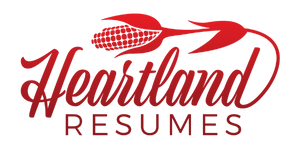Practical Tools for a Career Change (Successfully!)
Changing Career Paths
From a young age, we set our sites on careers that are frequently not practical as adults, leaving us to contemplate a different career path. Reasons for this change can be vastly different from one person to the next, but the idea of changing your career can be intimidating.
Before choosing to switch careers, it could be helpful to evaluate your current position. What are the things you found intriguing when you first took the job, and what are your main concerns today? This process could help determine if you need to explore more options in your current career or change paths entirely.
Here are a few simple tools for changing careers
- Understanding your current job satisfaction. It’s important to know about your current job you like and dislike. While evaluating why you dislike your job, consider whether it involves the work itself, company culture, or the people. Figuring out you’re ‘why’ will go a long way when it’s time for the change.
- Core values, skills, and interests. Reviewing your current and past roles, jobs, projects, or volunteer work can help identify what skills and interests are most important to you. Taking time to evaluate your core values and learning what skills and interests you want from your next career will make the transition more meaningful. Resources are available online to help you learn more about your core values, skills, and interests. Check out the Life Values Self-Assessment Test. This is a great tool to determine your core values. Another valuable resource is Careerfitter. This test offers a comprehensive career profile that helps you determine what path is right for you.
- Go big, but know what it takes to get there. If your current job is as an electrician, but you want to be a college professor, know that you may significant schooling and experience you will need before you get to that end goal. Carefully think through this and make sure it’s worth your time.
- Increase your knowledge. Consider ways to learn new skills in your current job that are related to the type of position you want to be in. Most companies offer internal training, so take advantage of it. Sign up for as many as you can. These skills can provide you with the experience your new career may be looking for without returning to school.
- Don’t quit your day job. Understanding this may not be an option for everyone, but if you can avoid it, do. Staying focused on finding a new career works best when you are not worried about when your next paycheck is coming. If you get laid off, think about taking a short-term position until you can fully transition into the career you want.
After using these simple tools and you are ready to start applying for jobs, the next step is to hire a professional resume writing company to ensure your cover letter reflects your values and aspirations and your resume focuses on your new goals. Contact the Resume Experts at Heartland Resumes today!





